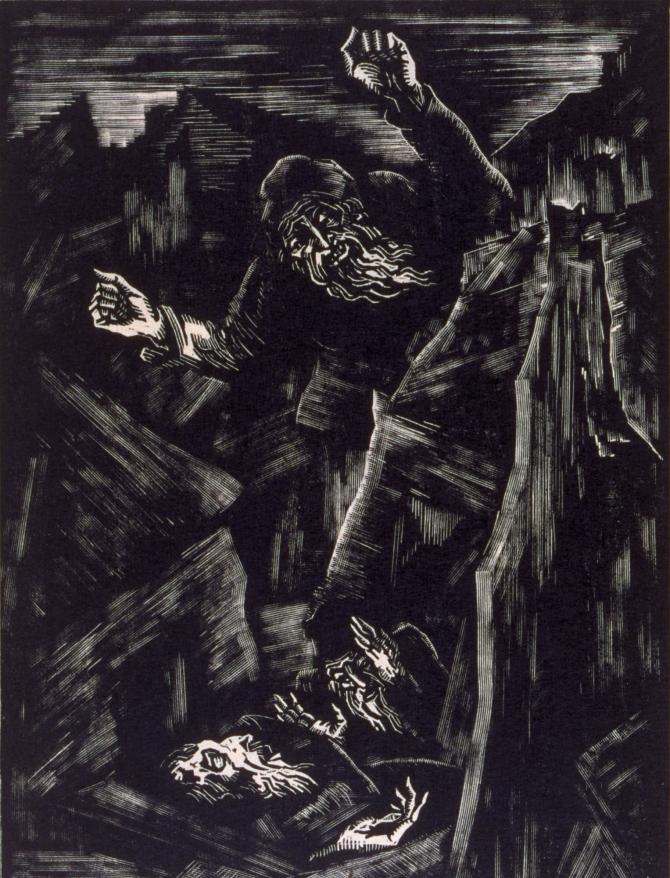
Joseph Budko (Plonsk, 1888 - Jérusalem, 1940), Dans la ville du massacre, Berlin, 1923
Illustration pour le poème éponyme de Haïm Nahman Bialik (Rady, 1873 – Vienne, 1934), 1904. Xylographie sur papier Japon, 17,3 x 12,4 cm
Joseph Budko (Plonsk, 1888 – Jérusalem, 1940)
Berlin, 1923
Illustration for a poem by Haïm Nahman Bialik (Rady, 1873 – Vienne, 1934), 1904
Xylograph on Japanese paper, 17.3 x 12.4 cm

Joseph Budko (Plonsk, 1888 - Jérusalem, 1940), Dans la ville du massacre, Berlin, 1923
Illustration pour le poème éponyme de Haïm Nahman Bialik (Rady, 1873 – Vienne, 1934), 1904. Xylographie sur papier Japon, 17,3 x 12,4 cm
After studying at the Academy of Fine Arts in Vilna, Joseph Budko went to Berlin in 1910, where he was taught etching by Hermann Struck. Fascinated by biblical themes and the ornamental qualities of Hebrew script, he devoted himself mainly to creating and illustrating books. The osmosis he created between illustration and text in Haggadah (the story of the Exodus) in 1917, created a revival in Jewish publishing. In 1923 he illustrated The City of Slaughter, the poem that Hayim Nahman Bialik wrote in Hebrew and Yiddish after the Kishinev pogrom in Bessarabia (6-8 April 1903), which left forty-nine dead, five hundred wounded and more than two thousand Jewish families homeless. In 1933, Joseph Budko left for Palestine and became director of the Bezalel Academy of Arts and Design in Jerusalem in 1935.
Marc Chagall (Vitebsk, 1887 – Saint-Paul-de-Vence, 1985)
Peretz Markish (Polonne, 1895 – Moscou, 1952)
Oser Warszawski (Sochaczew, 1898 – Auschwitz, 1944)
Paris, 1924
Chaïm Soutine (Smilovitchi, 1893 – Paris, 1943)
Paris, circa 1925